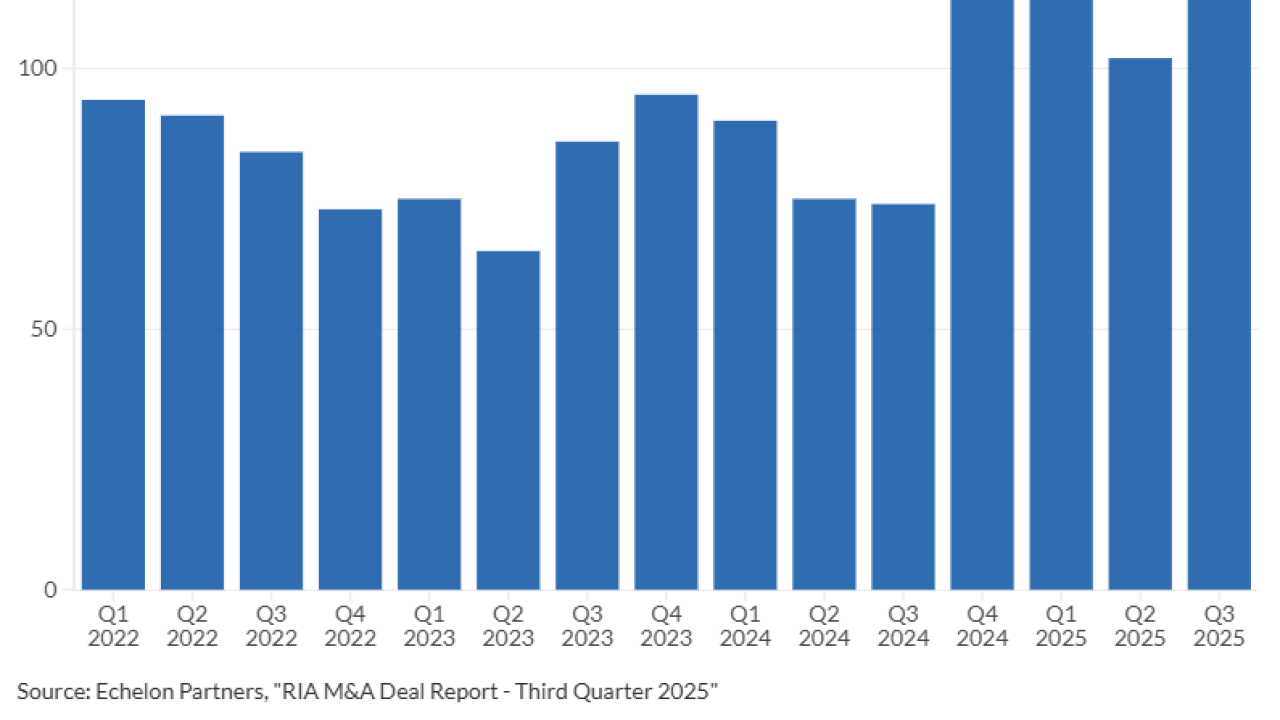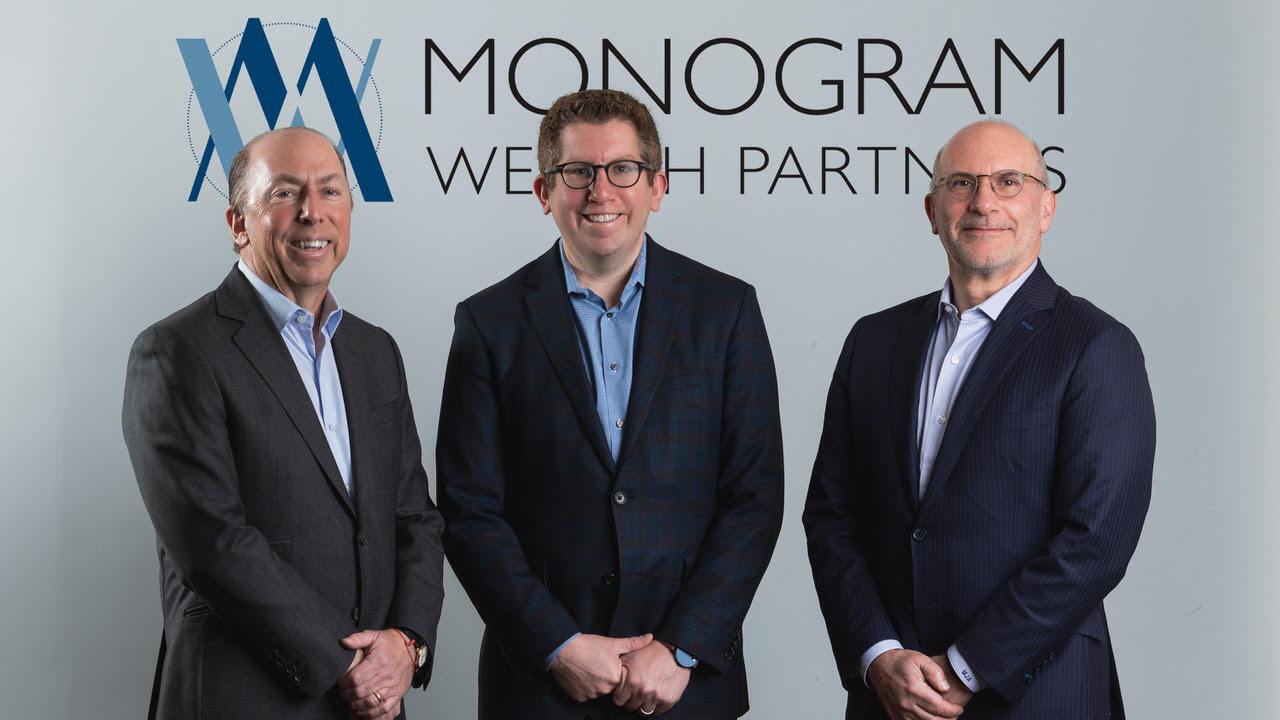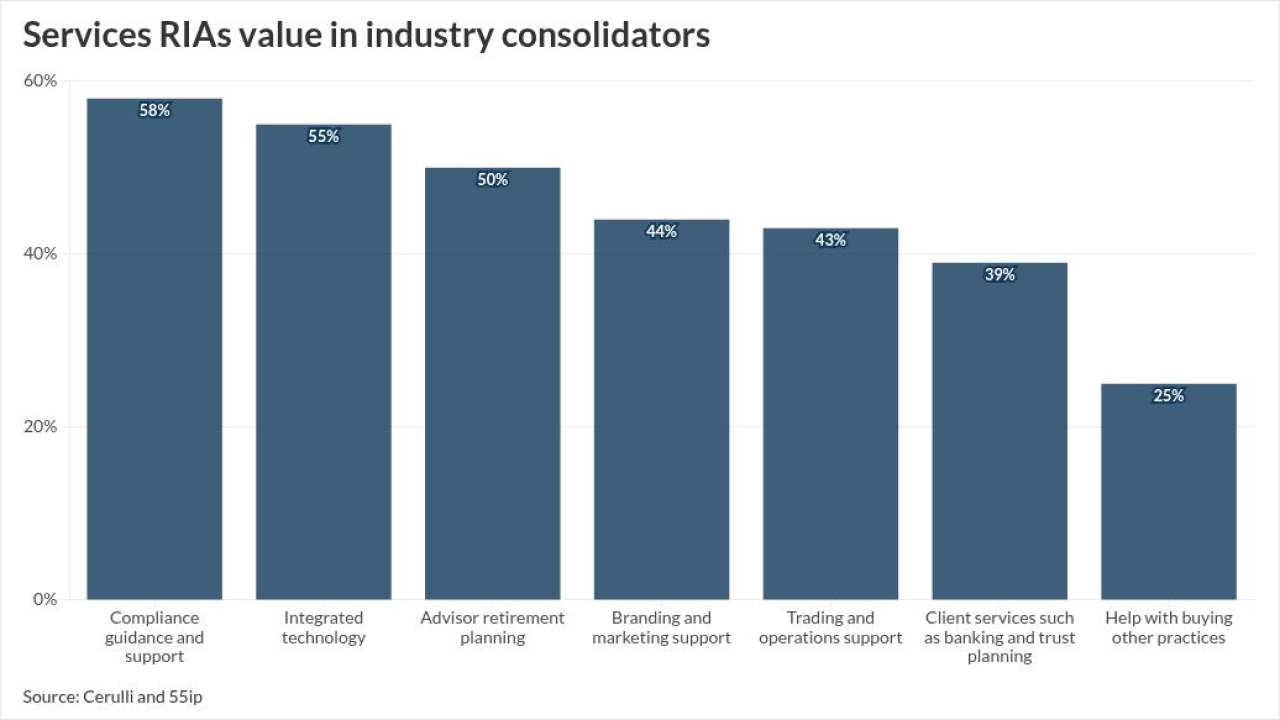Amid growing sources of data tracking the demographics in wealth management, a new company is using a proprietary algorithm to track representation at industry conferences.
Choir launched a certification and pledge tied to a formula with hundreds of data points to measure the visibility and participation of wealth management professionals who are from underrepresented groups — Black, Latino, minorities, women or non-binary people — at events, co-founders Sonya Dreizler and Liv Gagnon said in an interview. Dreizler, an expert in ESG and outspoken critic of conferences that feature predominantly white male lineups, and Gagnon, an industry public relations professional, unveiled their new firm on Jan. 11 after roughly a year developing the idea.
“It's just a great leverage point,” said Dreizler. “A conference changes their agenda and gets to rebuild it from scratch every year, and so it's a place where it’s easier to make faster change. Conferences are one of the main venues for our industry to show who our leaders are and who we listen to. Who we listen to really matters.”
Gagnon and Dreizler declined to say which specific conferences or firms that host them have expressed interest in hiring Choir for consulting services that include a Choir Score, speaker identification and creation of an anti-harassment policy. The services start at $15,000 per firm. Gagnon and Dreizler are also inviting professionals to take a pledge not to participate in events stocked with the infamous “man-els” or
“There's a role for everyone in our industry to play when it comes to this mission of representation,” Gagnon said, noting that the list of signers will be public on Choir’s website and professionals may use the pledge as a means of “thinking more intentionally about where they speak and where they put their time and resources.”
Despite the fact that most live events have turned virtual during the coronavirus, industry conferences remain pivotal to wealth management networking, professional development and recruiting. Firms across the industry spend, in some cases, tens of millions of dollars on them each year. Alongside more programs enabling aspiring minority professionals
A longstanding issue
Dreizler first helped prompt a discussion about industry events in 2019, when she and two other attendees at an exclusive conference exposed sexist comments
Few conferences have more representation of women and minorities than select panels or keynotes and separate breakout events aimed at female advisors or members of historically excluded groups. The Association of African American Financial Advisors’ Vision Conference, The American College of Financial Services’ Conference of African American Financial Professionals, the CFP Board Center for Financial Planning Diversity Summit and the FINRA Diversity Leadership Summit currently stand out as the most prominent exceptions to a lot of industry events that primarily feature white men.
Measuring the impact of speaker lineups and events on systemic change may prove challenging, according to Whitney Tome, a principal and head of the beyond diversity strategies practice at public affairs and consulting firm the Raben Group. Tome spoke on a panel
The “really quite fascinating” data upcoming from Choir also led Tome to wonder if the firm will evaluate whether the speakers are paid for their time, the degree that financial conferences feature specialists in diversity, equity and inclusion who have been successful in other fields and the extent that firms admit their past failures as part of showing progress, she said.
“We want to see a profession that is sustainable over the long haul,” Tome said. “Folks need to see themselves in that profession to know there’s actually a pathway to them. … Millennials and Gen-Z see the absence of diversity before they see anything else.”
How it works
The Choir algorithm will evaluate conferences based on data points offering a granular focus that, for example, grades the events on seven different visibility factors, according to Gagnon and Dreizler. Whether speakers are paid isn’t one of them, but their consulting will include discussions of pay equity and, next quarter, Choir will supply resources to speakers about how best to ensure they’re compensated for their time as well, Gagnon said.
In terms of visibility, Choir gives higher grades for events with keynote sessions led by women or minorities than it does for a panel that includes a member of one of the groups. Events that have women and minorities on panels about diversity, equity and inclusion when they’re experts in other areas will draw lower marks than conferences tapping into their areas of professional focus. With the highest potential score of 100, events that get at least 60 will receive a bronze, silver or gold certification that Choir will publish on its website as well, starting this summer.
Dreizler and Gagnon have been pitching the idea to many firms and conferences.
“We've just talked to a lot of conference organizers to make sure that we're building a tool that is useful to them,” Dreizler said. “This is absolutely on their radar. They care about it. They are trying and this is an area of focus for them in some capacity or another. There's just a varying level of tools and data and standards, and there are so many different processes in putting together conferences. But this does seem to be an area of attention.”
At this point, Dreizler and Gagnon aren’t saying which particular conferences have the best practices and which have the most work to do, based on their research.
“That's a question a lot of people are asking,” Gagnon said. “We want to be able to answer that question in an objective way.”







